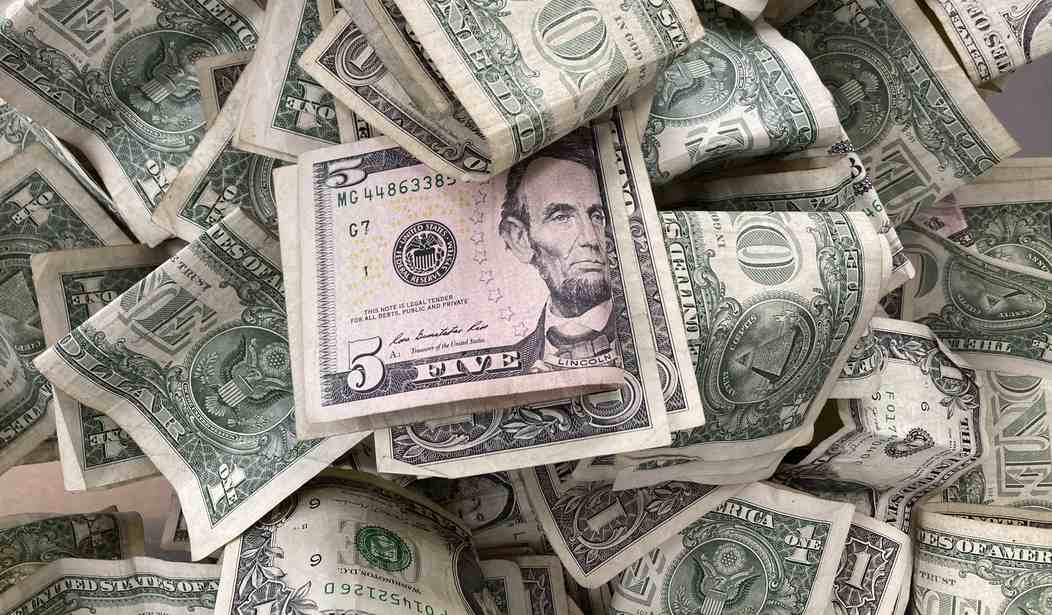While much of the political world focused on the confirmation hearings of Supreme Court nominee Ketanji Brown Jackson, across town in Washington on Monday, the chairman of the Federal Reserve, Jerome Powell, delivered a speech that could reverberate through the next two election cycles.
What was so politically consequential about Powell's speech? His declaration that he expects it will take three years to bring inflation, currently at 7.9% annually, its highest rate in four decades, back to a normal level. "The inflation outlook has deteriorated significantly this year, even before Russia's invasion of Ukraine," Powell told the National Association for Business Economics. "The rise in inflation has been much greater and more persistent than forecasters generally expected."
Powell then recounted how the experts at the Federal Reserve consistently underestimated the increase in inflation. When the Fed met last June, he said, all the participants predicted that 2021 inflation would be significantly lower than it ultimately turned out to be. And then, when they met in December, they did it again.
"Why have forecasts been so far off?" Powell asked. He attributed much of the current problem to the complex path of the COVID-19 pandemic, and especially to the fact that it has never gone completely away, despite the development of vaccines. The pandemic disrupted the balance of supply and demand in a way that has still not been fixed.
"In my view, an important part of the explanation is that forecasters widely underestimated the severity and persistence of supply-side frictions, which, when combined with strong demand, especially for durable goods, produced surprisingly high inflation," Powell said. "The pandemic and associated shutdown and reopening of the economy caused a serious upheaval in many parts of the economy, snarling supply chains, constraining labor supply, and creating a major boom in demand for goods and a bust in services demand."
Recommended
Powell pledged stronger Fed actions -- bigger increases in interest rates -- to bring inflation under control. But given current conditions, he admitted that inflation is going to be around for a while. "As the magnitude and persistence of the increase in inflation became increasingly clear over the second half of last year, and as the job market recovery accelerated beyond expectations, the [Fed's Federal Open Market Committee] pivoted to progressively less accommodative monetary policy," Powell said. "I believe these policy actions and those to come will help bring inflation down near 2% over the next three years."
Three years. That would be until early 2025. In between, we will have the 2022 midterm elections and the 2024 presidential election. And that is the political consequence of Powell's speech.
Inflation is the biggest single concern of the nation's voters at the moment. Barring some enormous, entirely unforeseen event, inflation will remain the voters' biggest single concern in November. To give you some idea of how important inflation ranks in voters' minds, a recent Wall Street Journal poll asked respondents what is the most important issue they would like to see the president and Congress address this year. Inflation was at the head of the list; with twice as many people cited it over the second-highest issue, the war in Ukraine, and 10 times as many people cited it over the COVID pandemic.
Republican strategists are planning House and Senate campaigns linking their incumbent Democratic opponents to Biden administration inflation. They will try to tie President Joe Biden to inflation and make the midterms a day of judgment on his job performance. "The midterms are about one thing and one thing only -- a referendum on the incumbent president," a GOP strategist said recently. "End of story."
Inflation is already an enormous weight on Biden's job approval rating, which now stands at 41.3% in the RealClearPolitics average of polls. Although Democrats expressed hope that Biden might enjoy a bump after his State of the Union address, and then as a result of his handling of the Ukraine crisis, it hasn't happened.
A majority of voters thinks Biden is doing a bad job at most everything. But they really think he is doing a bad job on inflation. When that Wall Street Journal poll asked whether respondents approved or disapproved of Biden's handling of inflation and rising costs, just 34% approved, while 63% disapproved. A big number -- 54% -- said they strongly disapproved. And just 4% of respondents said they did not know, which means almost everybody has an opinion on the issue.
And now Fed Chairman Powell is talking about inflation staying around until after the next presidential election. It is unclear whether Biden, who will be 82 years old on inauguration day 2025, will run again. But whoever heads the Democratic ticket will have to deal with the Biden legacy on inflation.
This content originally appeared on the Washington Examiner at washingtonexaminer.com/opinion/long-inflation.
Byron York is chief political correspondent for The Washington Examiner.

























Join the conversation as a VIP Member